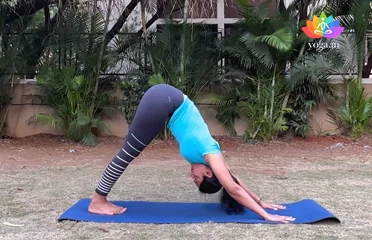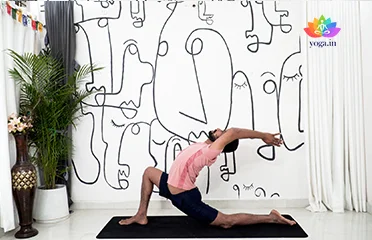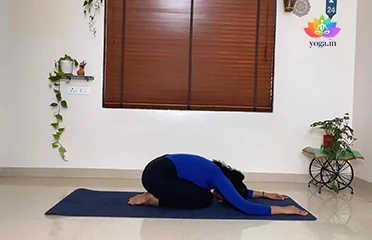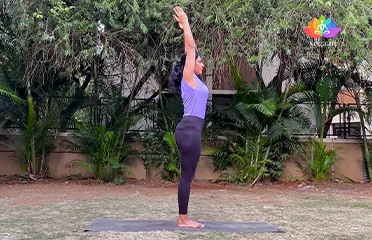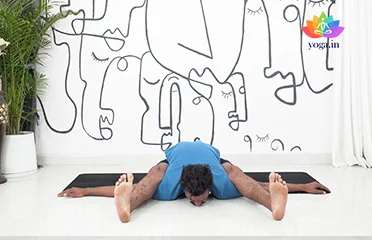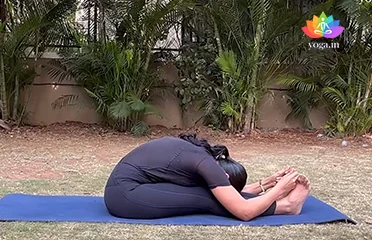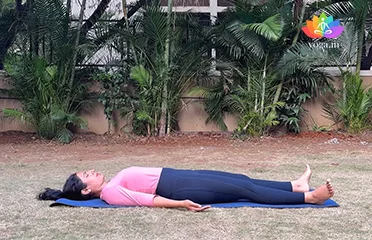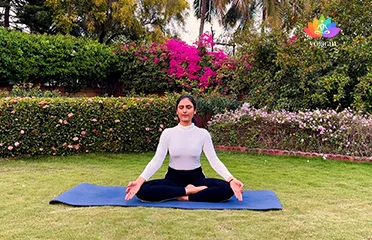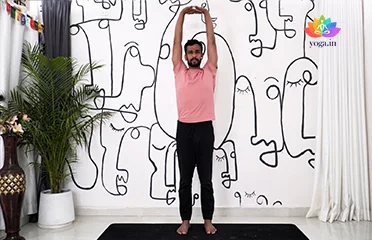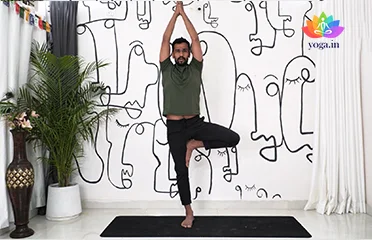Adho Mukha Svanasana (Downward-Facing Do
अधोमुख श्वानासन / Downward-Facing Dog Pose
The sanskrit name is derived from adhas (अधस्) meaning down, mukha [�K]
Anjaneyasana (Crescent Moon Pose)
आंजनेयासन / Crescent Moon Pose
The Sanskrit name is derived from Anjane (आंजने) meaning Hanuman, [�K]
Balasana (Child’s Pose)
बालासना / Child's Pose
The Sanskrit name is derived from Bala (बाला) meaning child and āsana [�K]
- 5.0/ 5 1 Rating
-
Ignore it...
- Seated Pose
Hastapadasana (Hand to Foot Pose)
हस्तपदासन / Hand to Foot Pose
The sanskrit name is derived from hasta (हस्त) means hands, pada (पदा) [�K]
Kurmasana (Tortoise Pose)
कूर्मासन / Tortoise Pose
The Sanskrit name is derived from Kurma (कूर्मा) meaning tortoise [�K]
Paschimottanasana (Seated Forward Bend)
पश्चिमोत्तानासन / Seated Forward Bend
The Sanskrit name is derived from three sanskrit words: Paschima (पश्चिमा) [�K]
Savasana (Corpse Pose)
शवासना / Corpse Pose
The Sanskrit name is derived from Śhava (शव) meaning "corpse" and āsana [�K]
Svastikasana (Auspicious Pose)
स्वस्तिकासन / Auspicious Pose
The Sanskrit name is derived from Swastika (स्वस्तिका) meaning [�K]
Tadasana (Mountain Pose)
ताड़ासन / Mountain Pose
The sanskrit name is derived from tada (ताड़ा) meaning mountain and [�K]
Vrikshasana (Tree Pose)
वृक्षासन / Tree Pose
The Sanskrit name is derived from Vriksha (वृक्षा) meaning tree [�K]
How Yoga Can Help Cure Memory Loss:
Memory loss, also known as amnesia, refers to the inability to recall past events or information. It can range from mild forgetfulness to severe memory impairment. Yoga offers a holistic approach to managing memory loss by improving cognitive function, reducing stress, and enhancing overall well-being.
Understanding Memory Loss:
Memory loss is a condition characterized by the inability to remember past events or information. It can be temporary or permanent and may affect short-term or long-term memory. Memory loss can result from various factors, including aging, brain injury, neurological disorders, or psychological trauma.
Yoga’s Role in Relieving Memory Loss:
Yoga offers a range of practices that can help alleviate memory loss symptoms by promoting brain health, reducing stress, and improving concentration. Specific yoga postures, breathing exercises, and meditation techniques can enhance cognitive function, boost memory retention, and foster mental clarity.
Key Factors Contributing to Memory Loss:
Several factors can contribute to memory loss, including:
- Aging: Natural age-related cognitive decline can affect memory function.
- Brain Injury: Traumatic brain injury or stroke can impair memory retrieval.
- Neurological Disorders: Conditions like Alzheimer’s disease or dementia can cause progressive memory loss.
- Psychological Trauma: Emotional or psychological trauma can impact memory processing.
- Poor Lifestyle Habits: Unhealthy diet, lack of exercise, and chronic stress can affect brain health and memory function.
Symptoms of Memory Loss:
Common symptoms associated with memory loss include:
- Forgetfulness: Difficulty recalling recent or past events.
- Confusion: Feeling disoriented or having trouble concentrating.
- Difficulty Learning: Struggling to retain new information or learn new tasks.
- Memory Gaps: Blank periods or gaps in memory.
- Language Problems: Trouble finding the right words or expressing thoughts.
- Misplacing Items: Frequently losing track of belongings or forgetting where they were placed.
Treatment of Memory Loss through Yoga and Pranayama:
Yoga and pranayama offer effective strategies for managing memory loss. Some beneficial practices include:
Specific Yoga Poses:
- Padmasana (Lotus Pose): Enhances concentration and mental clarity.
- Surya Namaskar (Sun Salutation): Improves blood circulation to the brain and energizes the body.
Pranayama Exercises:
- Kapalabhati (Skull-Shining Breath): Increases oxygen flow to the brain and enhances mental clarity.
- Brahmari (Bee Breath): Calms the mind and reduces stress, promoting better cognitive function.
Diet for Memory Loss:
A brain-healthy diet can support memory function and cognitive health. Recommendations include:
- Omega-3 Fatty Acids: Found in fatty fish, flaxseeds, and walnuts, omega-3s support brain health and memory.
- Antioxidant-Rich Foods: Berries, leafy greens, and colorful fruits and vegetables protect against oxidative stress and inflammation in the brain.
- Whole Grains: Brown rice, quinoa, and oats provide sustained energy for optimal brain function.
- Healthy Fats: Avocados, olive oil, and nuts support neurotransmitter function and enhance cognitive performance.
- Hydration: Drinking plenty of water throughout the day to stay hydrated and support brain function.
Caution for Memory Loss:
While practicing yoga for memory loss, it is essential to:
- Start Slowly: Begin with gentle practices and gradually increase intensity to avoid overexertion.
- Listen to Your Body: Pay attention to any signs of discomfort or fatigue and modify poses as needed.
- Be Patient: Improvements in memory function may take time, so be consistent with your yoga practice and maintain realistic expectations.
Contraindications for Memory Loss:
Individuals with severe memory loss or cognitive impairment should:
- Avoid Complex Poses: Stick to simple, straightforward yoga poses to prevent confusion or frustration.
- Use Props for Support: Incorporate props like blocks or straps to ensure stability and safety in yoga practice.
- Practice Mindfulness: Stay present and focused during yoga sessions to enhance awareness and concentration.


